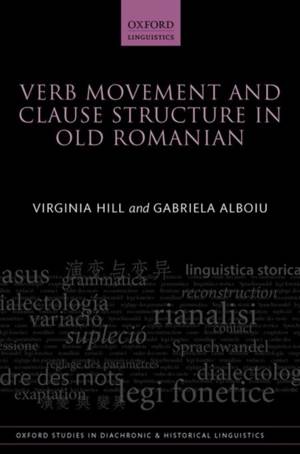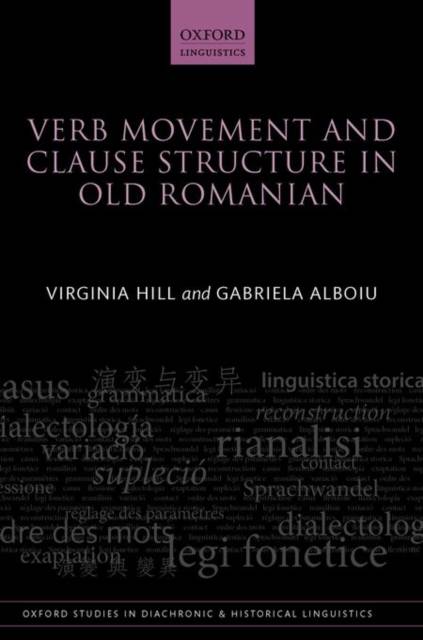
- Afhalen na 1 uur in een winkel met voorraad
- Gratis thuislevering in België vanaf € 30
- Ruim aanbod met 7 miljoen producten
- Afhalen na 1 uur in een winkel met voorraad
- Gratis thuislevering in België vanaf € 30
- Ruim aanbod met 7 miljoen producten
Zoeken
€ 241,95
+ 483 punten
Omschrijving
The book provides a formal analysis of root and complement clauses in Old Romanian. Virginia Hill and Gabriela Alboiu examine the combination of Balkan syntactic patterns such as generalized subjunctive complementation on the one hand, and the Romance morphology that supplies complementizers and grammatical mood forms on the other. The consequences of this mixed typology range from root clauses with non-finite verbs to split heads and repeated recycling in clausal complements. The book argues that discourse triggers at the left periphery are responsible for fluctuations in verb movement in finite clauses, while with gerunds and imperatives verb movement follows from functional constraints. It further argues that clausal complements to control and raising verbs systematically display the pattern of the Balkan subjunctive, and that the spell out of these clausal complements has been repeatedly recycled during the development of Romanian. Verb Movement and Clause Structure in Old Romanian presents a new perspective on the manifestation of Balkan Sprachbund properties in the language, and on the nature of parametric differences in relation to other Romance languages. It provides a unified explanation for a range of constructions that have previously been treated as separate phenomena, and places diachronic changes in Romanian in a wider context.
Specificaties
Betrokkenen
- Auteur(s):
- Uitgeverij:
Inhoud
- Aantal bladzijden:
- 352
- Taal:
- Engels
- Reeks:
Eigenschappen
- Productcode (EAN):
- 9780198736509
- Verschijningsdatum:
- 21/03/2016
- Uitvoering:
- Hardcover
- Formaat:
- Genaaid
- Afmetingen:
- 152 mm x 236 mm
- Gewicht:
- 621 g

Alleen bij Standaard Boekhandel
+ 483 punten op je klantenkaart van Standaard Boekhandel
Beoordelingen
We publiceren alleen reviews die voldoen aan de voorwaarden voor reviews. Bekijk onze voorwaarden voor reviews.











